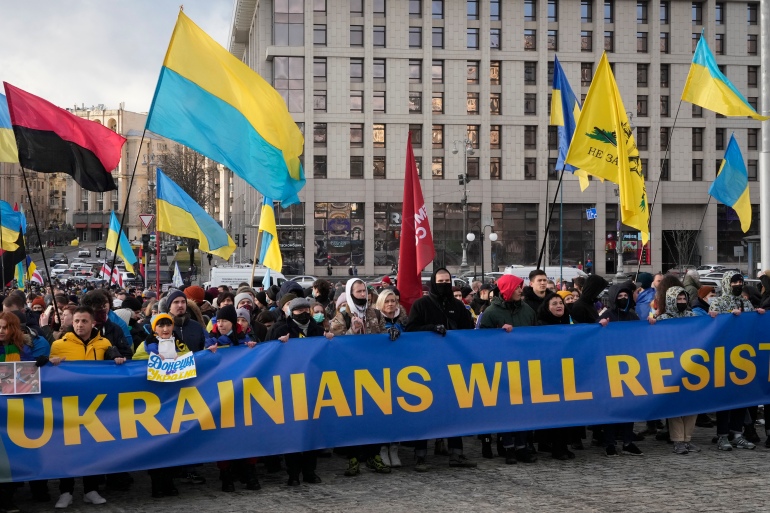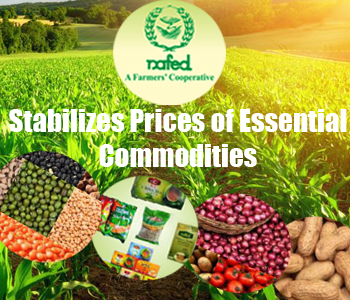By Anca Voinea
The conflict, which has claimed several civilian lives, and so far brought a total death toll of 137, is putting co-operative businesses and their members at risk. However, the country’s consumer co-operatives say they will do their best to keep serving their members.
“Despite the fact that there is a war and people are dying, co-operation works and tries to fulfil its social functions,” said Iryna Lopushanska, head of international affairs at the All-Ukrainian Central Union of Consumer Societies (Ukrkoopspilka), which trades as COOP Ukraine – speaking on 24 February.
The union includes 15,000 enterprises, 3,000 restaurants, seven hotels, 300 manufacturing businesses and shops, and 300 markets throughout Ukraine.
Prior to the full-scale Russian attack on 24 February, the union had issued a statement in which it appealed to every employee of consumer co-ops to stay calm and continue their work, so customers could still rely on goods and services.
Since 2016, the World Council of Credit Unions (Woccu) has been running a support project, Credit for Agriculture Producers (CAP), with the financial support of USAID. The programme aims to strengthen the Ukrainian credit union market, and in doing so, expand access to agricultural credit.
Woccu says it is “extremely concerned” about the potential impacts the military conflict in Ukraine will have on both its member credit union associations in the country, and the project.
“We are in regular communication with the Ukrainian National Association of Savings and Credit Unions (UNASCU) and the All-Ukrainian Association of Credit Unions to provide support where we can during this crisis,” said Woccu president and CEO, Elissa McCarter LaBorde.
Woccu says it will coordinate with USAID and prepare contingency plans for CAP, as well as continued project administration. But it does not rule out adjustments “dictated by the changing realities on the ground” to ensure the safety of its staff, many of whom are Ukrainian nationals.
Following the January decision by the US Department of State to evacuate US staff and family members, Woccu temporarily moved its CAP chief of party and her family out of the country.
“Our chief of party, who is not a citizen of Ukraine, will continue to work remotely to ensure the continuation of all project activities for as long as possible,” said Ms McCarter LaBorde.
“The World Council of Credit Unions will continue to assess the situation in Ukraine on a continuous basis moving forward and will adjust our plans as necessary.”
The US Credit Union National Association (CUNA) has also released a statement. Signed by president / CEO Jim Nussle, it said: “America’s credit unions stand united with the Ukrainian American Credit Union Association (UACUA) in expressing our deep desires for peace within Ukraine. The threat of escalating violence would further destabilise the country and displace millions more. We are praying for a swift end to hostilities in the region.
“UACUA represents 12 credit unions in the United States that serve over 100,000 members with close ties to family and friends in Ukraine. When the time comes, we anticipate Ukraine’s credit unions and UACUA will play a critical role in shoring up financial security for the people of Ukraine, and we will be ready to lend our support.”
Social Economy Europe, which represents the voice of 2.8 million social economy enterprises and organisations in Europe, has issued a statement in which it condemned the invasion and called for a ceasefire.
“The social economy is a project of peace, democracy, solidarity and cooperation,” it said. “A movement arising from a free civil society, from free individuals that co-operate to provide collective solutions to societal challenges.
“In this turbulent and sad period in which war is happening again in the heart of Europe, SEE reminds that illegal violence and war are an instrument of the past, connected with our past tragedies and darkest hours.
“SEE condemns the violence, calls for peace and to cease the aggression, and stands in solidarity with the people of Ukraine, and with all those around the world (coming from different nations and beliefs) that stand with peace and co-operation, as the best instrument to achieve welfare, freedom and shared prosperity.”
The International Organisation of Industrial and Service Cooperatives (Cicopa) and the European Confederation of Industrial and Service Co-ops (CECOP) also pledged solidarity to the people of Ukraine via Twitter posts.
And UK apex Co-operatives UK said: “The UK co-operative movement stands in solidarity with co-operatives in Ukraine and everyone affected by the invasion and attack on their right to exist as a sovereign country.
It said it had reached out to We’re reached out to COOP Ukraine and would keep its members informed of any support the UK movement can provide.
The conflict might pose organisational and ideological challenges for the global co-operative movement, including the International Co-operative Alliance (ICA).
Historian Rita Rhodes, author of The International Cooperative Alliance during War and Peace 1910-1950, warns that global tensions can put huge pressure on international organisations.
“The ICA survived World War I when other international non-governmental organisations with which it had close relations – and which, like it, espoused the international brotherhood of mankind and world peace – split. They found too great pressures of total war and ideological tensions.
“In its aftermath the ICA had to quickly decide which delegations it would accept from territories created by the Versailles Treaty and the Russian Revolution. Ukrainian membership was subsumed into that of USSR’s Centrosoyus. The ICA also had to agree its attitude and position to Communism and the USSR. Will Ukrainian co-operatives survive the present conflict?”
–ICA Coop

















































